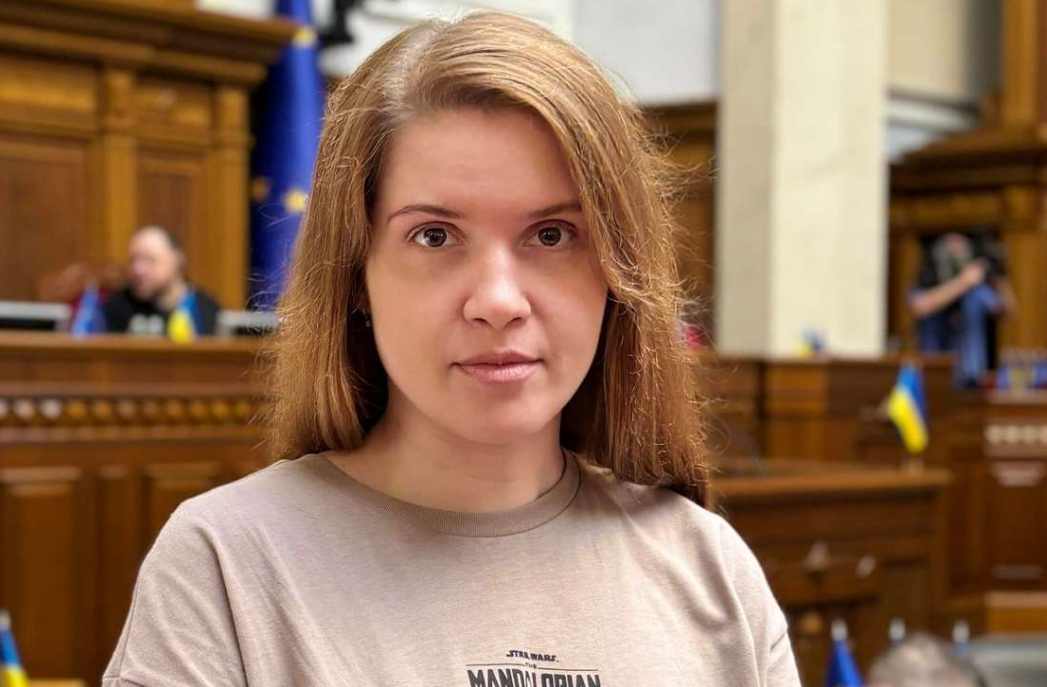Ukraine Deputy Mariana Bezuhla Slams Ukrainian Military: Ukrainian MP Mariana Bezuhla has ignited a political firestorm by accusing the Ministry of Defense and Commander-in-Chief Alexander Syrsky of obstructing the development of interceptor drones, crucial for defending against Russian attacks. In a scathing Telegram post, she highlights bureaucratic failures, lack of innovation, and civil society’s silence, all while Ukraine faces a looming financial crisis and underfunded armed forces. Her critique raises urgent questions about leadership accountability, defense preparedness, and national survival.
Ukraine Deputy Mariana Bezuhla Slams Ukrainian Military
A new wave of political turmoil has erupted in Ukraine as Mariana Bezuhla, a prominent Deputy in the Verkhovna Rada, has launched a scathing public critique against the country’s military leadership. In a fiery Telegram post, Bezuhla accused the Ministry of Defense and Commander-in-Chief Alexander Syrsky of paralyzing Ukraine’s drone warfare development at a crucial juncture in the ongoing war with Russia. Her sharply worded remarks exposed what she described as deep-rooted bureaucratic stagnation and strategic blunders that could imperil Ukraine’s ability to defend its cities and front lines.
Bezuhla, known for her outspoken criticism of military mismanagement, zeroed in on what she sees as deliberate obstruction by top defense officials. She alleged that both the Ministry of Defense and Syrsky are actively blocking the development and deployment of interceptor drones—vital technologies in countering Russia’s increasing drone and missile attacks.
“Why are even those charitable foundations that are developing interceptor drones silent about the fact that the development of a critical area for protecting cities and defending the front is being blocked?” she asked, calling out the broader defense ecosystem for its inaction. Bezuhla highlighted the alarming fact that Ukraine has failed to mass-produce a single interceptor drone, has not developed a domestic drone akin to the DJI Mavic in over three years, and has not organized any meaningful drone development competitions in the past year.
The lawmaker didn’t stop at military leadership; she extended her criticism to civil society and the Office of the President, questioning the absence of anti-corruption probes and broader accountability mechanisms. “I am not asking where the president’s reaction is because I have had the answer for a long time,” she wrote, adding that the control system in President Zelensky’s office is “dysfunctional and fragmented.” Her stinging rebuke also portrayed Syrsky and Defense Minister Rustem Umerov as being “on the other side of evil,” while lamenting the silence from Ukraine’s civil society in demanding answers.
This is not Bezuhla’s first public confrontation with the military hierarchy. She had previously blasted Syrsky for alleged failures in building adequate fortifications in the Sumy region, a vulnerable area along Ukraine’s northeastern border that faces persistent Russian threats.
Her latest accusations come at a particularly precarious time for Ukraine. The country’s financial stability is teetering as Finance Minister Serhiy Marchenko recently warned Parliament that Kyiv is running out of money. The Ukrainian armed forces, according to Marchenko, are facing severe funding shortfalls, and the Ministry of Finance is urgently trying to amend the 2025 budget while preparing a contingency plan for 2026. The looming financial crunch raises concerns that Ukraine’s capacity to continue the war effort and invest in critical defense infrastructure—including drone technology—could rapidly erode.
Bezuhla’s warnings cast a spotlight on the growing disconnect between Ukraine’s battlefield needs and the government’s strategic and fiscal responses. As Russia continues its relentless drone and missile assaults, the absence of domestically produced interceptor drones could leave Ukrainian cities and military units dangerously exposed.
In a war where technological superiority and rapid innovation can mean the difference between survival and collapse, the internal strife among Ukraine’s political and military leadership adds a troubling layer of vulnerability. If the accusations hold weight, Ukraine’s inability to prioritize and advance its drone warfare capabilities may not only cost it strategic advantage—it could cost lives.
Disclaimer:
This article is based on publicly available information and statements made by Ukrainian lawmaker Mariana Bezuhla. The views and allegations presented are those of the individual and do not necessarily reflect the stance of this platform. Readers are advised to seek additional sources for a comprehensive understanding of the situation. The content is intended for informational purposes only and should not be interpreted as political endorsement or accusation.

